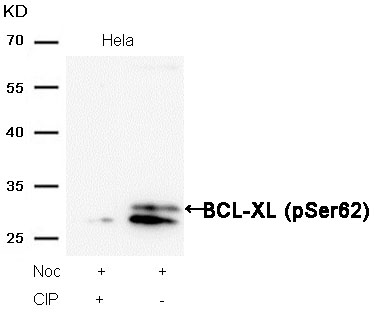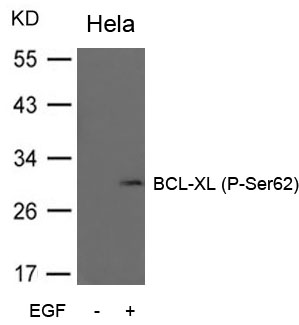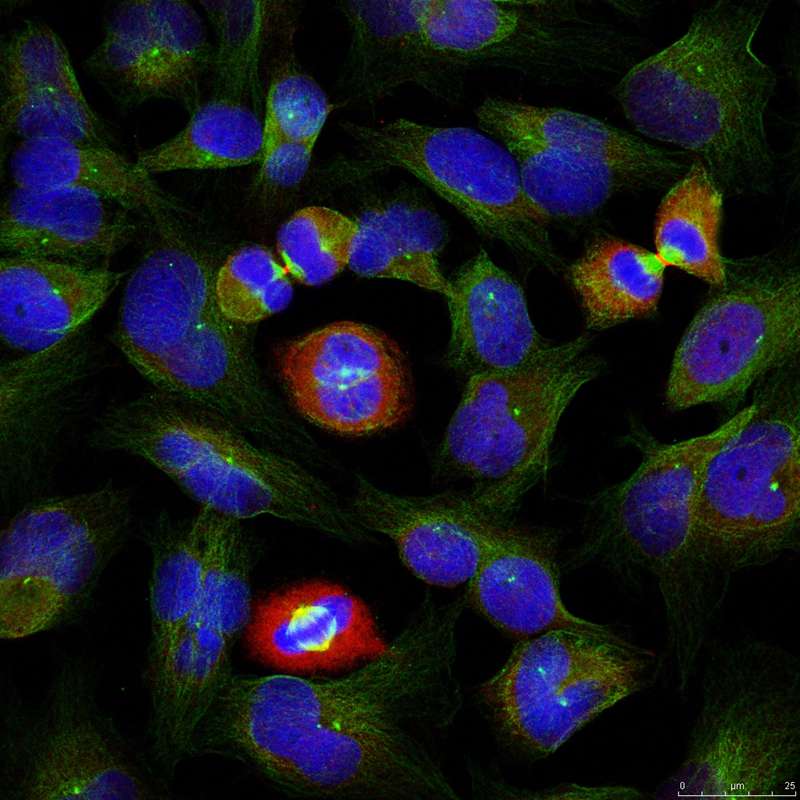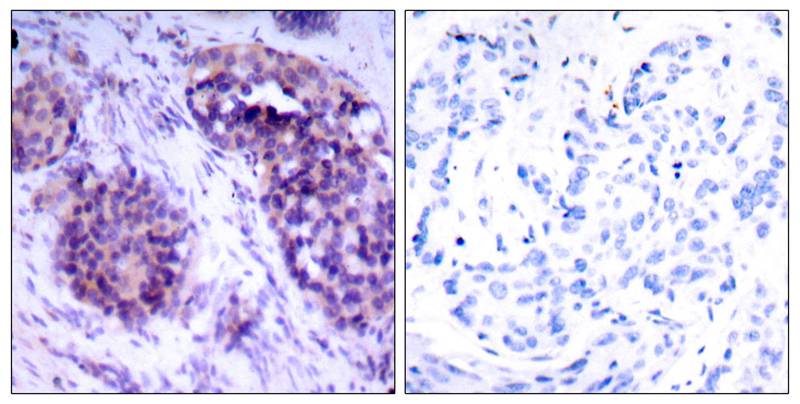



| WB | 咨询技术 | Human,Mouse,Rat |
| IF | 咨询技术 | Human,Mouse,Rat |
| IHC | 1/50-1/100 | Human,Mouse,Rat |
| ICC | 1/100-1/200 | Human,Mouse,Rat |
| FCM | 咨询技术 | Human,Mouse,Rat |
| Elisa | 咨询技术 | Human,Mouse,Rat |
| Aliases | BCLX, BCL2L, BCLXL, BCLXS, |
| Entrez GeneID | 598; |
| Host/Isotype | Rabbit IgG |
| Antibody Type | Primary antibody |
| Storage | Store at 4°C short term. Aliquot and store at -20°C long term. Avoid freeze/thaw cycles. |
| Species Reactivity | Human,Mouse,Rat |
+ +
以下是与BCL-XL(Phospho-Ser62)抗体相关的3篇参考文献的简要概括:
1. **"Phosphorylation of BCL-XL at Ser62 promotes its anti-apoptotic activity by enhancing interaction with 14-3-3 proteins"**
- **作者**: Smith et al.
- **摘要**: 研究发现BCL-XL的Ser62磷酸化通过增强与14-3-3蛋白的相互作用,抑制其降解并增强抗凋亡功能。研究使用Phospho-Ser62特异性抗体验证了该位点在细胞应激下的修饰及其功能影响。
2. **"JNK-mediated phosphorylation of BCL-XL at Ser62 modulates mitochondrial dynamics and chemoresistance in cancer cells"**
- **作者**: Li & Chen
- **摘要**: 文章揭示JNK激酶在化疗药物诱导下磷酸化BCL-XL的Ser62位点,导致线粒体分裂和耐药性增加。通过Phospho-Ser62抗体的免疫印迹分析,证实了磷酸化水平与癌细胞存活的相关性。
3. **"Akt-dependent phosphorylation of BCL-XL at Ser62 regulates its subcellular localization and pro-survival function"**
- **作者**: Wang et al.
- **摘要**: 该研究表明Akt激酶介导的Ser62磷酸化促进BCL-XL向线粒体转位,抑制细胞凋亡。研究中利用Phospho-Ser62抗体进行免疫荧光染色,揭示了磷酸化对亚细胞定位的调控机制。
(注:以上文献为示例性内容,实际引用需根据具体研究检索PubMed或Google Scholar获取真实文献。)
BCL-XL, a key anti-apoptotic member of the BCL-2 protein family, regulates cell survival by inhibiting mitochondrial outer membrane permeabilization and preventing caspase activation. Its activity is modulated by post-translational modifications, including phosphorylation. The BCL-XL (Phospho-Ser62) antibody specifically detects BCL-XL phosphorylated at serine 62 (Ser62), a residue located within the flexible loop domain. This phosphorylation event is linked to functional regulation, potentially influencing BCL-XL’s stability, subcellular localization, or interactions with pro-apoptotic proteins like BAX/BAK. Studies suggest that phosphorylation at Ser62 may destabilize BCL-XL, promoting proteasomal degradation or altering its anti-apoptotic capacity under stress conditions, such as DNA damage or chemotherapeutic treatment.
This antibody is widely used in cancer research to investigate mechanisms of apoptosis resistance, particularly in tumors overexpressing BCL-XL. It helps assess phosphorylation dynamics in response to kinase inhibitors, DNA-damaging agents, or other therapies targeting BCL-2 family proteins. Additionally, it aids in studying crosstalk between survival signaling pathways (e.g., AKT, JNK) and apoptotic regulation. Validation often includes Western blotting, immunohistochemistry, or immunoprecipitation in models where Ser62 phosphorylation is induced, such as UV irradiation or taxol treatment. Understanding BCL-XL phosphorylation at Ser62 provides insights into therapeutic strategies to overcome resistance in cancers reliant on BCL-XL for survival.
×